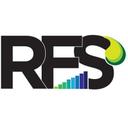Vilsack provides update on USDA’s 45Z work, comments on foreign feedstock issue

Agriculture Secretary Tom Vilsack
September 10, 2024
BY Erin Voegele
Agriculture Secretary Tom Vilsack provided an update of USDA’s work to support guidance for the 45Z Clean Fuel Production Credit and candidly discussed the possible repercussions of efforts to limit the credit to domestically produced feedstocks during a Sept. 10 speech at the Growth Energy Biofuels Summit.
Vilsack said the USDA has recognized stakeholder concerns that the 40B Sustainable Aviation Fuel (SAF) tax credit is too restrictive and did not include enough flexibility for feedstock growers. In response, the USDA earlier this year launched a public comment period to gather additional input on climate smart agriculture for biofuel feedstock production. The agency is currently in the process of assembling the 260 comments received as part of that effort is and working to issue a final rule that essentially identifies the feedstocks that, from the USDA’s perspective, should be authorized and allowed to produce fuel that qualifies for the 45Z credit. The agency hopes this effort will expand the list of eligible feedstocks beyond just corn and soy, he said. The agency is also working to see if it can make the case for individual practices on the farm and/or combinations of farm practices to address the issue of flexibility.
According to Vilsack, the USDA is expediting development of the rule as much as possible. The agency hopes the final rule will plug into the upcoming Treasury guidance. He encouraged stakeholders to continue to engage the USDA as well as Treasury, the U.S. Department of Energy and the U.S. Department of Transportation to advocate for scientifically accurate, workable solutions to climate smart feedstock production.
Advertisement
Advertisement
Vilsack also addressed the issue of foreign-produced feedstocks and the 45Z credit, noting it’s a tough issue that could have wider implications for the trade of all agricultural commodities, including ethanol. He said the conversation over the foreign feedstock issue has, to date, lacked the necessary nuance. “You have to understand that for every action there is a reaction—and you better understand what that reaction is,” he said.
Vilsack offered China as an example—noting the country was once the number one importer of many U.S. commodities. That has changed, Vilsack explained, citing the impact of political rhetoric.
“The problem with that conversation in China—the problem with that conversation on this issue of feedstocks is it’s not sophisticated,” he said. “It’s not layered, it’s not comprehensive, it’s not as complex as it needs to be.”
Advertisement
Advertisement
He stressed that certifications and inspections are crucial to ensuring that the characteristics of imported feedstocks are not misrepresented, such as feedstock claimed as used cooking oil containing palm oil. “You have to have systems in place to ensure what people say about a particular feedstock is in fact the truth,” Vilsack said. “That gets into inspections, that gets into certifications, it gets into the nuts and bolts of how things come and go—totally legitimate. But, if you want to ban something and say ‘you can’t use this,’ you need to know what the reaction is going to be and whether you are ok with that reaction. Because, if the reaction is ‘we’re not going to buy your corn, we’re not going to buy your soybeans, we’re not going to buy your ethanol, we’re not going to buy your pork, we’re not going to buy your beef,’ are you ok with that?” Vilsack explained that such trade restriction could impact the ability to export American commodities, causing falling prices and leading to wide-reaching repercussions in the U.S. agricultural sector.
Rather than looking for ways to stop competition from overseas, Vilsack stressed it is far more effective and constructive to look for ways to win that competition.
Related Stories
More than 1.76 billion renewable identification numbers (RINs) were generated under the Renewable Fuel Standard in January, down from 1.91 billion generated during the same period of 2024, according to data released by the U.S. EPA on Feb. 20.
The U.S. EPA on Feb. 20 released updated small refinery exemption (SRE) data showing that 13 previously denied SRE petitions for Renewable Fuel Standard compliance years 2021 and 2022 are being reconsidered. No new SRE petitions were filed.
A coalition of biofuel, agriculture, fuel retailer and petroleum trade groups on Feb. 19 sent a letter to U.S. EPA Administrator Lee Zeldin urging the agency to set robust, timely, multiyear RFS RVOs for 2026 and beyond.
CVR pauses development of potential SAF projects pending regulatory, tax credit clarity
CVR Energy Inc. released fourth quarter financial results on Feb. 18, reporting reduced renewable diesel production. The company also said it is pausing development of SAF capacity pending clarity on government subsidies.
CARB on Feb. 18 announced that amendments to its LCFS program that were approved in November 2024 have been put on hold following the California Office of Administrative Law’s decision to disapprove the amendments due to clarity issues.
Upcoming Events










